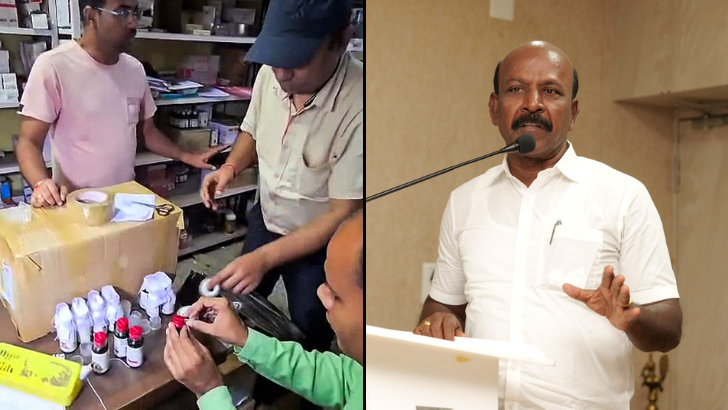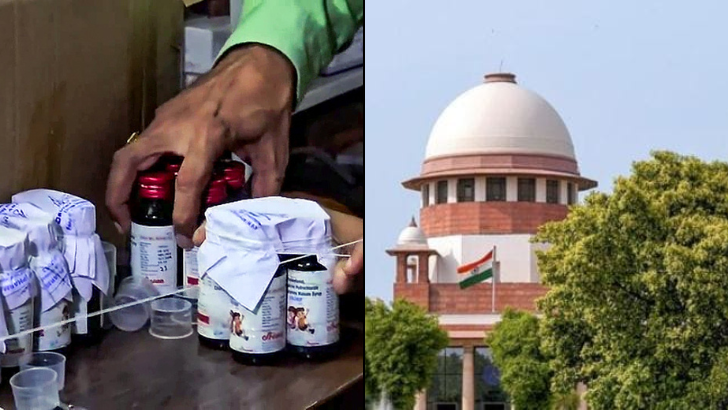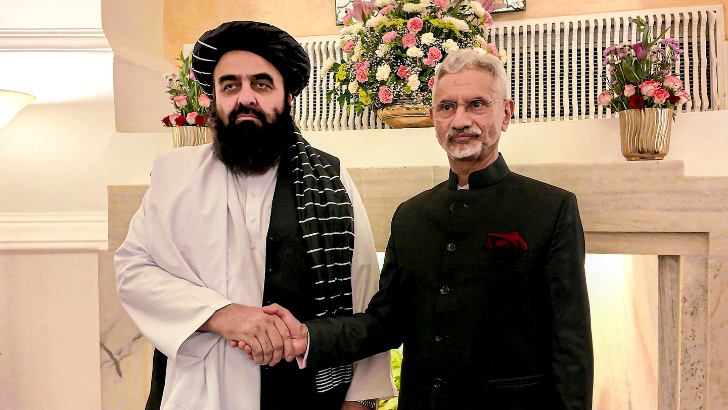Cops used excessive force on peaceful 'I Love Muhammad' stir: APCR
Fact-finding by civil rights group reveals alleged police excesses, unlawful arrests, and targeted demolitions against Muslim community following peaceful protest.
Salar News
-
Instead of addressing the disruption, police allegedly asked the Muslim organisers to remove the banner. (PTI)
Bareilly, 11 Oct
A fact-finding report by the Association for Protection of Civil Rights
(APCR) has raised serious concerns over the conduct of police and
administrative authorities in Bareilly during and after a protest on 26
September, 2025. The protest, led by Bareilly cleric and Ittehad-e-Millat
Council (IMC) Chief Maulana Tauqeer Raza Khan, was organised to submit a
memorandum in support of the ongoing ‘I Love Muhammad’ campaign.
The campaign itself arose from a controversy in Kanpur
earlier in the month, where a banner displaying the words “I Love Mohammad” was
installed during Eid-Milad-un-Nabi celebrations. Though organisers claimed to
have received prior permission, local Hindutva groups objected.
Instead of addressing the disruption, police allegedly asked
the Muslim organisers to remove the banner. Later, Kanpur police filed an FIR
against 24 Muslims, including organisers, accusing them of inciting communal
tension.
In response, Muslims across India condemned the FIR and
staged peaceful protests, including the one in Bareilly. However, what began as
a symbolic gathering to express support quickly escalated into a widespread
crackdown by the police.
Timeline of events in Bareilly
According to the APCR report, Maulana Tauqeer Raza called
for the protest on 21 September through a video message. Though permission was
denied, confusion spread due to conflicting WhatsApp messages, prompting large
crowds to gather after Friday prayers on 26 September near Ala Hazrat Dargah
and the cleric’s residence.
While most demonstrators dispersed peacefully, some scuffles
broke out. Police responded with force — invoking Section 163 of the Bharatiya
Nagarik Suraksha Sanhita (BNSS), lathicharging, deploying tear gas, and later
deploying extra security force across the city.
Ten police personnel were reportedly injured, and violence
spread to multiple areas including Civil Lines and Bansmandi.
The following day, Maulana Tauqeer Raza was arrested and
sent to 14-days in judicial custody and named in at least seven FIRs. An SIT
was constituted to investigate the events.
By 7 October, police had arrested 89 individuals, filed 10
FIRs, and demolished or sealed multiple properties allegedly linked to those
accused. Internet services were suspended in Bareilly Division from 1 to 4
October, citing “security concerns” ahead of Dussehra.
Findings: Excessive force and legal irregularities
The APCR report alleges a disproportionate and punitive
response by authorities, revealing a pattern of targeting Muslims through
arbitrary arrests, misuse of legal provisions, and property demolitions.
Key findings include:
- Disproportionate legal charges:
FIRs accessed by the APCR fact-finding team present a "skewed version
of events," depicting peaceful assembly as criminal. Charges included
severe sections like 132 (offences against the state) and 302 (murder),
despite no fatalities or evidence of rebellion. The FIRs often repeated
language across police stations and failed to specify individual actions.
- Lack of due process in arrests:
Detainees were reportedly picked up without explanation, and families were
not informed. Arrest memos and FIRs were not provided promptly. Local
lawyers reported that several minors were also detained, but their
location and legal status remained unclear.
- Shop sealing without notice: On 29
September, 32 shops in Pehalwaan Markaz Market — a registered Waqf
property — were sealed without prior notice or legal documentation. This
action occurred despite an ongoing legal stay from the Waqf Tribunal.
Tenants were denied access to any official explanation.
- Targeted demolitions: Properties
linked to Muslim leaders and activists were demolished or sealed,
including the Raza Palace banquet hall, linked to Dr. Nafees, a close aide
of Tauqeer Raza, who was in jail at the time. Other properties belonging
to political figures and associates of the cleric were similarly targeted.
- Digital and physical suppression: Internet shutdowns caused disruption to daily life and business activity. Muslim-dominated localities witnessed heavy police presence, in stark contrast to Hindu-majority areas which remained unaffected.
Political interference
The APCR report also noted that political delegations from
the Aam Aadmi Party (AAP) and Samajwadi Party (SP) were prevented from entering
Bareilly to assess the situation. Several leaders were placed under house
arrest. A petition has since been filed with the State Human Rights Commission
challenging the legality of the demolitions and arrests.
A pattern of suppression
In the 30 days leading up to the Bareilly protest,
authorities filed 45 FIRs in 23 cities — all against Muslims. Over 4,500
individuals were booked, of whom 265 were arrested. The APCR report argues that
the government's approach has moved beyond maintaining law and order and
instead shows signs of criminalising dissent and suppressing religious
expression.
“The language used in FIRs paints an entire community as a
dangerous mob. There's no effort to distinguish between peaceful protestors and
those who may have engaged in isolated acts of unrest,” the report states.
Conclusion
The APCR concludes that the police and administration in Bareilly responded with "excessive and aggressive" force, violating legal procedures and basic civil rights. It says that what began as a peaceful expression of religious sentiment was met with crackdowns that involved arbitrary arrests, denial of due process, and punitive demolition of properties. The disproportionate response has led to widespread fear, economic loss, and a chilling effect on civil liberties.
The organisation has called for independent investigations, restoration of legal rights, and accountability from the authorities responsible for these actions.
Leave a Reply
Your email address will not be published. Required fields are marked *








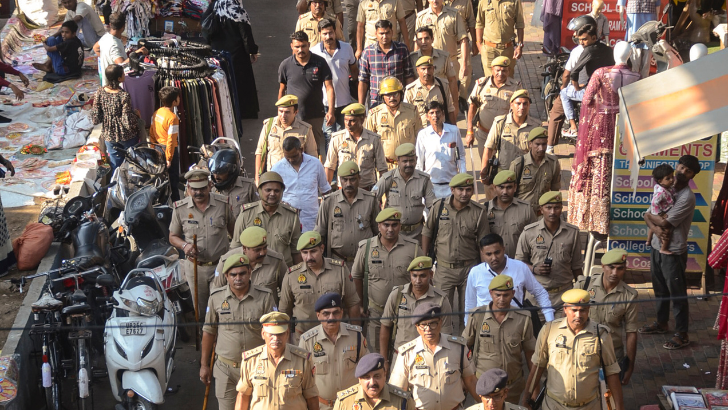

.png)
.png)
.png)
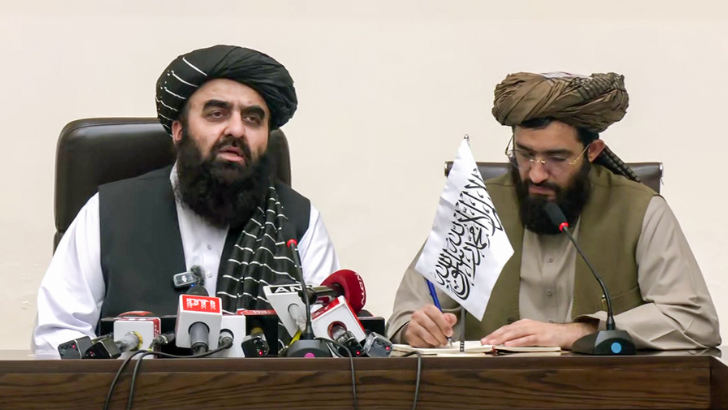
.png)
.png)
.png)
